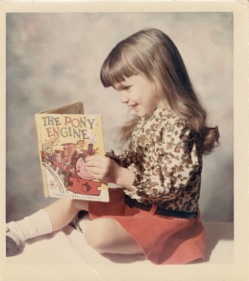
But let’s set literature aside for the moment and focus on personal stories.
I love and need stories as much as the next person. We all need narratives to explain our lives. Stories help us wrap our heads around challenging experiences, take the long view on complex matters, cherish the sublime, and come to terms with dark and terrifying experiences.
But we forget the flipside of this: Stories can just as easily obscure the truth, and words can be their weapons.
Consider the deeply chilling UVA gang-rape story that appeared in Rolling Stone in November. I know that some of the reporting is under question, but what stays with me is the phrase “bad experience.” At one point, a female student being interviewed by Sabrina Rubin Erdely points to a frat house and explains that her friend had a recent “bad experience” there.
Hello? How about “My friend was the victim of rape in that house, a felony crime”? This form of sexual battery carries a prison sentence of five years to life in Virginia. Hmm. Sure sounds like a super-duper bad experience to me.
And now the Japanese government is spinning a story about the 80,000 to 200,000 women who were forced into government-sanctioned, institutionalized prostitution during World War II. No, they say: These “comfort women” were not provided to Japanese troops for sex by Imperial Japan’s military authorities, a crime that Amnesty International calls “one of the world’s biggest cases of human trafficking.” According to the Abe administration, they were prostitutes who followed the camps of their own volition. Forget the thousands of survivors’ stories of abduction and abuse—those sluts must have wanted it.
Maybe, just maybe, “sex slave” is a more accurate term than “comfort woman.”
Those thousands of women worked in what were called “comfort stations.” One wonders: Who exactly experienced comfort in those places? Certainly not the women, but I can’t even imagine a soldier deriving comfort from having sex with a woman who might have been forced to have intercourse with fifty to a hundred men a day.
(As an aside here, at Jones Beach State Park, near where I grew up on Long Island, the bathrooms have always been called “comfort stations.” Bizarre.)
Of course, the study of euphemisms and word connotations is nothing new. We’ve all noticed the power of word choice: Is your boyfriend slender, or is he scrawny? Are those shoes affordable, or are they cheap? Just look at the progression of what we call people whose limbs don’t function as planned: Over the past sixty-odd years, the terms have shifted from “crippled” to “handicapped” to “disabled” to “physically challenged” to “differently-abled.” The examples are endless.
But back to stories.
It is de rigueur these days to embrace all of our experiences as essential to our growth. Yeah, yeah, we know your grandma said whatever doesn’t kill you makes you stronger, and serendipitous things happen that make fate seem completely real, and the stupid things we’ve all done make great fodder for tales told ’round the fire.
But I’ve also heard some truly hideous tales minimized by this kind of thinking. A teen once told me she wouldn’t trade her tough experiences for anything because they made her who she is today. She had been raped at a young age, her father had beaten her mother and their children for years before he abandoned them, and her family was living in poverty. As much as I admired her resilience, I couldn’t help but think her response was just a coping mechanism derived from a story that others had told her. Some well-meaning person—a relative, a teacher, a counselor, a priest—had likely said, “Embrace it all.” I assume this was to help her overcome those truly tragic experiences enough to get through her daily life. But seriously, who wouldn’t change any of that if it were possible? Encysting an infection so the greater organism can continue to function is all well and good—and highly practical. But let’s be truthful about what’s being encased in that little sac, and let’s remember that stories can good or bad, helpful or damaging.
I was complaining to my mom the other day about some disappointing thing and I ended the bitch session with the pat adage, “It could always be worse.” She then surprised me by saying, “It could be better, too.” Way to go, Mom. Let’s be real with ourselves. If we’re not, we run the risk of forgetting to search for the truth and to fight to change what’s wrong in the world. We run the risk of lying to ourselves with stories.




 RSS Feed
RSS Feed
